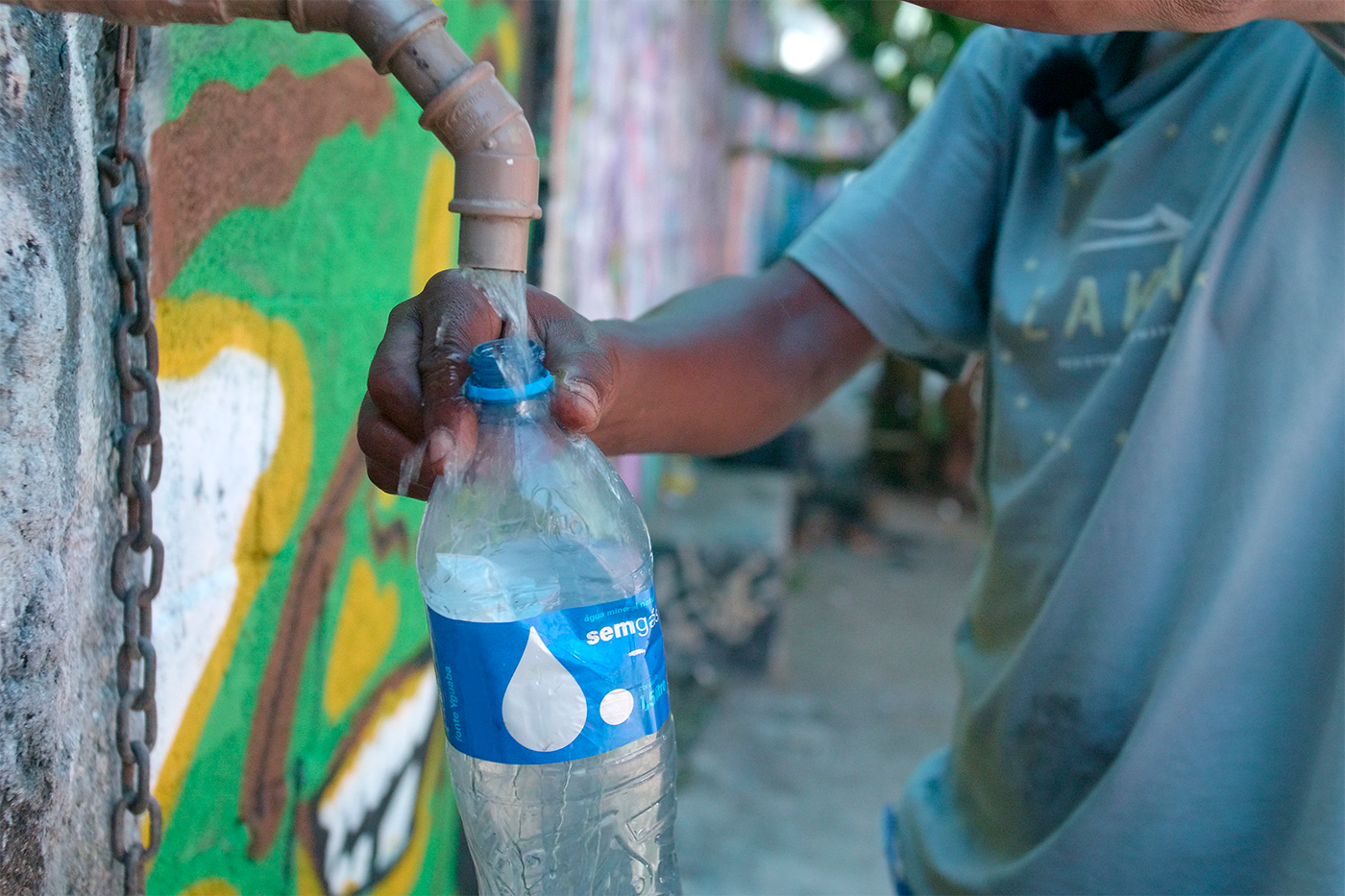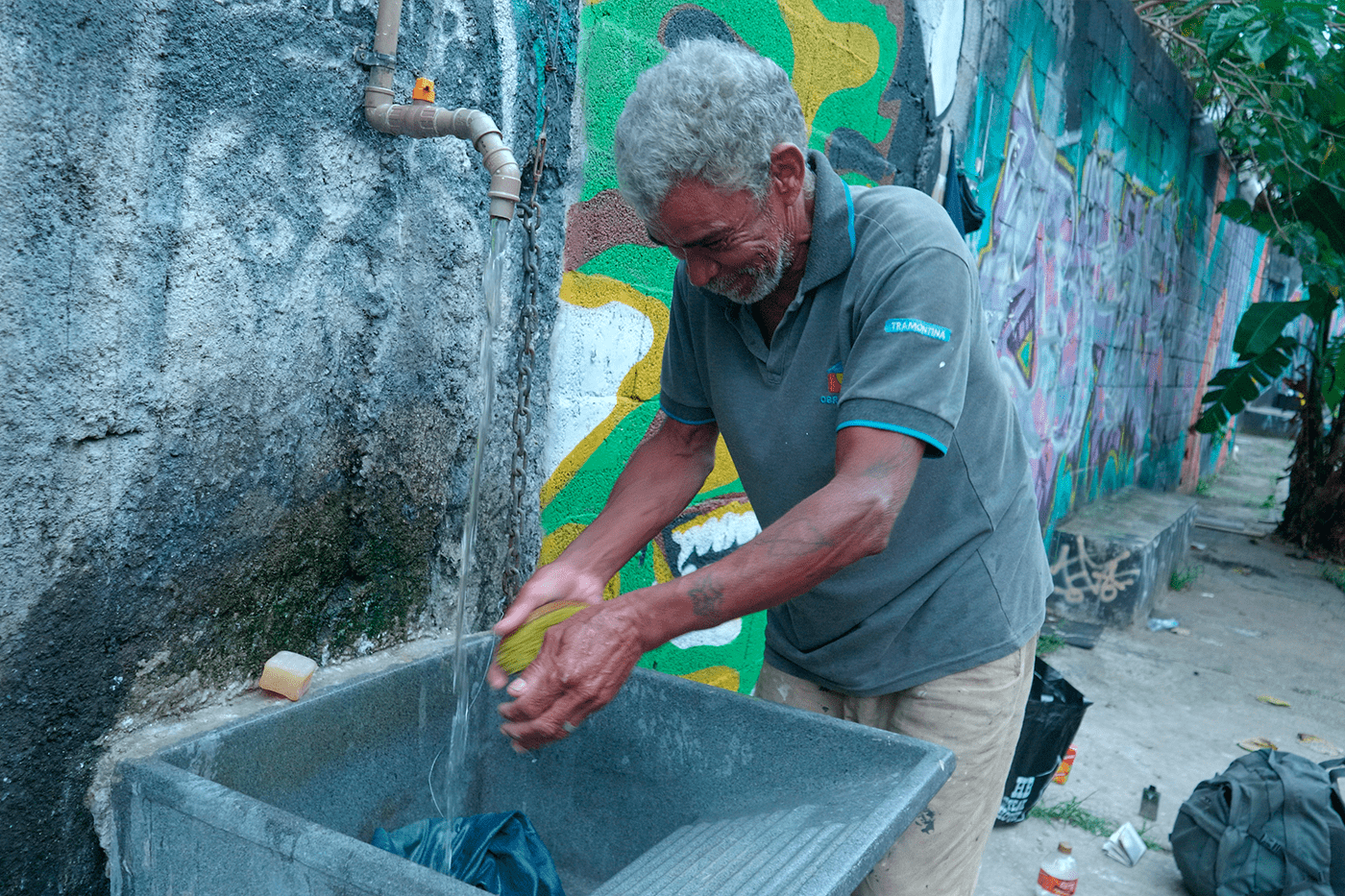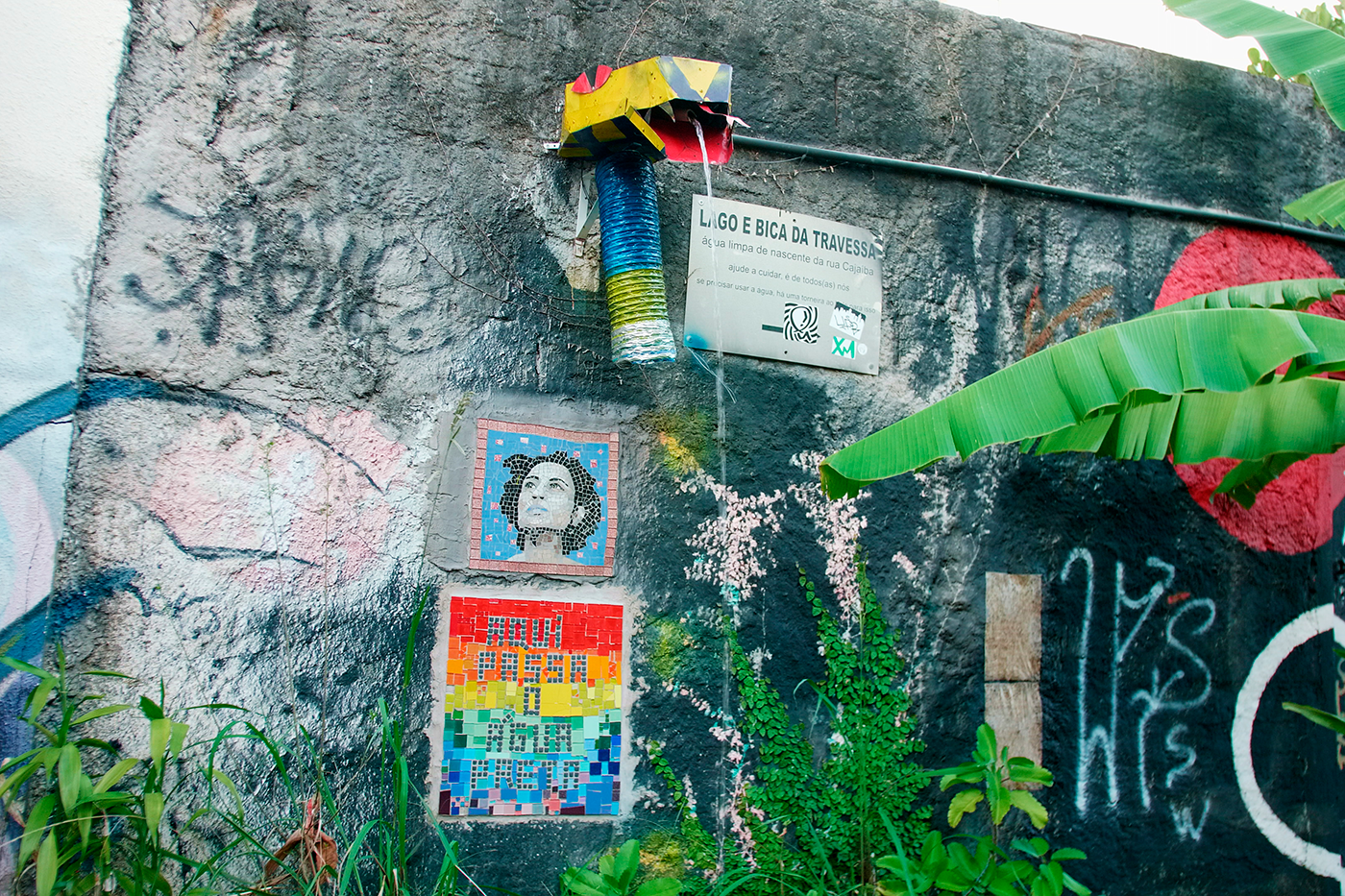Project implementation: Brazil
Project development: Brazil
Conexão Água is a short documentary that begins with the invisible presence of the Água Preta stream, buried under layers of concrete in São Paulo, to reveal how water insists on creating connections—territorial, environmental, and human—even in contexts of erasure. The film weaves through various scenes in which water takes center stage: the spring that endures and feeds a community pond; a class held in an alley, where students encounter a river running hidden beneath their feet; and the daily reality of homeless people who, deprived of shelter, are also deprived of a tap.
Between São Paulo and Buenos Aires, between scarcity and abundance, the documentary reveals how water exposes inequalities but also opens up possibilities for encounter, care, and collective imagination. The camera follows the artistic and environmental experiences of the collective (se)cura humana, which has been active in São Paulo since 2015 with performances, installations, and urban interventions focused on the visibility of buried water, the creation of community spaces, and the demand for the right to the city and nature. Works such as Lago da Travessa, Torneira da Travessa, and Parque Aquático Móvel are featured in Ocupação (se)cura, a living territory on Travessa Roque Adóglio in the Vila Anglo Brasileira neighborhood, where the film gains much of its poetic and political power.
Conexão Água proposes a critical fable: what if we recognized rivers and waters as subjects of rights, capable of reorganizing collective life and urban design? In this sense, the short film documents community practices and serves as a gesture of art activism, blurring the lines between cinema, performance, urbanism, and environmental pedagogy.
Authors
Flavio Barollo is a video artist, performer, and co-founder of the collective (se)cura humana. His filmography includes the works Utopian Cities in an Ancestral Future (2025); Water Connection (2024), selected at the Suncine Barcelona Festival; PARELHA – A Look at Reality (2024); Deserto SP (2023); I'm Going to Tell a Story I Don't Even Know How to Start (2021); Freedom Freedom (2021); It's All a Fight and Poetry Rules (2020); My Body, My Border (2020); Brick Brazil (2015); (se)cura humana, the film (2015); Loberia (2015); Véio (2010), winner of the Popular Jury at the Cascavel Festival; and Blood for the Children (2009).
Wellington Tibério is a musician, educator, geographer, and co-founder of the collective (se)cura humana. A doctoral candidate at FFLCH-USP, he works as a teacher in schools and community projects, integrating teaching practices, art, and urban ecology. At (se)cura humana, he develops performance-based classes in water-filled territories, integrating scientific knowledge, local wisdom, and artistic and activist experience. He is the author of the essay "WATER AND URBANISM: ARTISTIC ACTIONS FOR AN (IM)POSSIBLE CITY," published in the Redobra journal of the Federal University of Bahia (UFBA).




